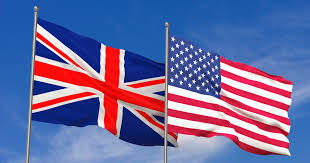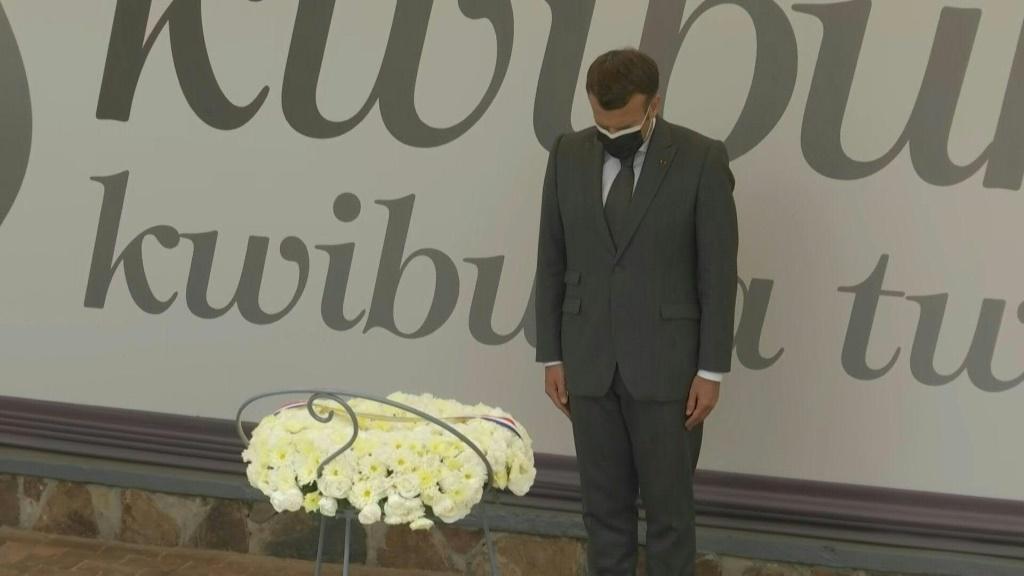Regional
Victoire Ingabire, Rwanda's good governance is not determined by your caliber

In today's Rwanda, good governance and human rights can only be rightly assessed by law abiding citizens not someone like Victoire Ingabire with a long history of working with terror networks and promoting the double genocide theory.
These days the global north media will stop at nothing to
publish anything defaming Rwanda and its leadership. The publication by The Guardian, a British daily, of an Op-Ed by Victoire Ingabire on
June 1, is the latest such episode. It
has become a pattern for The Guardian
and some other Western media houses to buy into the most deplorable lies pushed
by Rwanda's detractors, and therefore become their mouthpieces.
Ingabire who claims to aspire to be president of a country
is openly advocating for the same country to be sanctioned to serve her own
interests. Clearly, she would be happy if the Commonwealth Heads of Government
Meeting (CHOGM) is never held in Rwanda. Under a self-congratulatory attention
seeking headline, “My story proves
Rwanda’s lack of respect for good governance and human rights”, Ingabire
(and her editor) asserts that responsibility for defending what the
Commonwealth stands for must not pass to the country - Rwanda - without
reforms.
First of all, good governance and human rights can only be
rightly assessed by law abiding citizens not someone like Ingabire with a long
history of working with terror networks and promoting the double genocide
theory. A simple investigation, especially into her past, by The Guardian could have helped shed
light on how dangerous she is. Ingabire who has dedicated her life to promoting
the double genocide theory and terrorism lived for many years in The
Netherlands (where she was naturalised as a citizen).
Soon after the 1994 genocide against the Tutsi in Rwanda, in
1995, Ingabire was among the founder members of the Rally for the Return of
Refugees and Democracy in Rwanda (RDR) - a party of the defeated genocidal
regime in exile in the then Zaire, now the Democratic Republic of Congo (DRC). At the time, the man who recruited her, Lt Col
Juvenal Bahufite, an intelligence chief in the genocidal regime, saw an asset
in her. Ingabire was 'clean' since
she could not be directly linked to the 1994 genocide - despite her parent’s
direct participation in the massacres - having gone to The Netherlands in 1993.
Despite Ingabire's vehement denials, her mother, Thérèse Dusabe,
a midwife at the Butamwa Health Center in Kigali nicknamed "the doctor of
death" for her cruelty during the genocide first killed Tutsi pregnant
women and then killed babies by hitting them on the wall. Her father, Pascal
Gakumba, who was a bourgmestre for Kibilira commune between 1994 and 1996 was
active in inciting people in his commune to carry out genocide.
When Ingabire joined RDR, it was reorganizing to return to
Rwanda and kill the Tutsi who had survived the genocide. In 1997 RDR tactically
changed its name to Partie pour la
Libération du Rwanda (PALIR). Its armed wing became Armes de Libération du Rwanda (ALIR). Ingabire continued
representing the terror group even as it continuously changed names to escape
the genocide tag and sought to rebrand as a legitimate opposition party intent
on playing a role in Rwandan politics.
In March 1999, ALIR fighters murdered eight tourists in
Uganda's Bwindi Forest, near the DRC, and things changed when the US government
slapped ALIR with sanctions and designated it as a terrorist organization. About
two years later, in May 2002, ALIR rebranded again and turned into the Democratic
Forces for the Liberation of Rwanda (FDLR) with an armed wing called the Force
Combattante Abacunguzi (FOCA), which exists up to now. Since its establishment
in 2002, however, the FDLR has changed form as well as split into various other
factions, all which harbour a genocide ideology.
In April 2006, the United Democratic Forces of Rwanda (UFDR)
was formed. It then also morphed into the United Democratic Forces- Inkingi
(FDU-Inkingi) - led by Ingabire who recruited fighters from the FDLR and also
from inside Rwanda. Evidence provided to Rwandan prosecutors by Dutch Police
after a judicial search at her home in the Netherlands shows that Ingabire
travelled from Europe to meet recruited FDLR commanders in Kinshasa. Dutch
Police also shared a document with minutes of the Kinshasa meeting including
military deployment plans.
In her Op-Ed, Ingabire claims that when she decided to leave
The Netherlands, and contest the 2010 presidential elections, she was
"arrested and dragged into politically motivated judicial
proceedings." The Rwandan government does not tolerate dissenting voices,
she claims. What she avoids to mention is that the Rwandan government does not
tolerate genocide ideology and terrorism. Politics of hate and divisionism have
no place in today's Rwanda. The Guardian
and other newspapers giving space to Ingabire and her like are aiding genocide
revisionism.
Right from the time Ingabire arrived in Rwanda, in January
2010, her ulterior motives were clear. She was, and remains, a genocide
ideologue and terrorist masquerading as a politician. Her press briefing at the
Kigali Genocide Memorial especially spoke volumes. At the memorial, Ingabire told journalists
that: "If you look at this memorial centre, it only shows one side of the
Genocide committed against the Tutsi. "There
is another side of the Genocide committed against the Hutu because they are
also in pain and asking themselves when their grievances will be settled."
These utterances tantamount to double genocide theory, a crime punishable under
Rwandan law.
In October 2010, the Police detained her after it emerged
that she was also involved in subversive activities. It all started when the
ever vigilant Rwandan security services intercepted Maj Vital Uwumuremyi, a
former FDLR militia member, trying to sneak across the DR Congo–Rwanda border
with fake papers. When interrogated, Uwumuremyi then detailed plans to form a
new rebel group. Ingabire, Uwumuremyi revealed, was thick in the
plot.
Later, Ingabire was duly tried and convicted. In 2012, the
High Court sentenced Ingabire to eight years in jail after finding her guilty
of terrorism, endangering state security and denying the 1994 Genocide against
the Tutsi. The next year, the Supreme Court increased her jail term to 15 years
after it found her guilty of spreading rumours with an intention to incite the
public to rise up against the State, endangering state security and minimising
the 1994 Genocide againstthe Tutsi.
In September 2018, when President Paul Kagame exercised his
prerogative of mercy to grant early release to more than 2,000 inmates
convicted for various crimes, Ingabire too was given a chance to redeem
herself. But she resumed her criminal activities as soon as she got out of
prison. Ingabire did not launch her political organisation, Development and Liberty for All
(DALFA-Umurinzi) - it is not legally registered in Rwanda - with a mission to
strive for the rule of law and for sustainable development benefiting every
Rwandan as she claims.
In early October 2019, assailants from RUD-Urunana, the
armed wing of Ingabire’s FDU-Inkingi, attacked Kinigi sector, in northern
Rwanda, killing 14 people and injuring many others. When those captured later
revealed their network, in November 2019, Ingabire announced the formation of
DALFA-Umurinzi to distance herself from the Kinigi attackers.
The transformation of Rwanda after the 1994 genocide, is
beyond the reproach of the likes of Ingabire who stand for forces of evil, not
development. As for political space, the fact that Ingabire is not allowed to
do politics based on her Hutu Power ideology, does not mean that political
activities are restricted. Rwandan law
requires politicians to have irreproachable morals.






